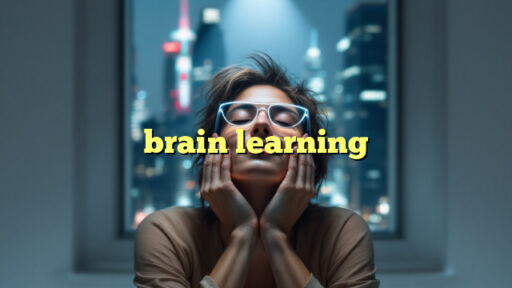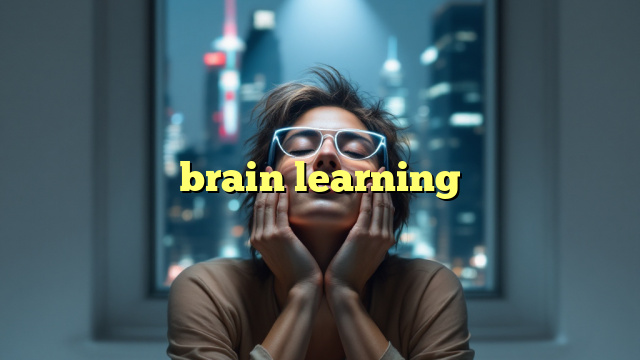Learning is a complex process that involves various cognitive functions in our brain. The way we acquire, process, store, and retrieve information is a fascinating aspect of human cognition. In this article, we will explore the concept of brain learning and how our minds absorb and retain knowledge.
Understanding Brain Learning
Brain learning, also known as neuroeducation, is the study of how the brain learns and processes information. It involves understanding the neural mechanisms that underlie learning and memory formation. Our brain is a complex organ with billions of neurons that communicate with each other through electrical and chemical signals. When we learn something new, these neurons form new connections and pathways, which strengthen the memory of that information.
How Our Brain Learns
When we are exposed to new information, our brain goes through several processes to absorb and retain it. The first step is attention, where our brain focuses on the information and filters out distractions. This is followed by encoding, where the information is processed and stored in our memory. Consolidation is the next step, where the memory is strengthened and integrated into our existing knowledge. Finally, retrieval is the process of accessing the stored information when needed.
Factors Affecting Brain Learning
Several factors can influence how our brain learns and retains information. These include our level of motivation and interest in the subject, our cognitive abilities, the environment in which we are learning, and the teaching methods used. For example, engaging in active learning strategies such as hands-on activities and group discussions can enhance learning and memory retention.
Conclusion
Brain learning is a complex process that involves various cognitive functions and neural mechanisms. Understanding how our brain learns and processes information can help us improve our learning strategies and enhance our memory retention. By paying attention to factors that influence learning and using effective teaching methods, we can optimize our learning potential and acquire knowledge more efficiently.
FAQs
What is brain learning?
Brain learning, also known as neuroeducation, is the study of how the brain learns and processes information. It involves understanding the neural mechanisms that underlie learning and memory formation.
How does our brain learn?
When we are exposed to new information, our brain goes through several processes to absorb and retain it. These include attention, encoding, consolidation, and retrieval.
What factors can affect brain learning?
Factors such as motivation, cognitive abilities, learning environment, and teaching methods can influence how our brain learns and retains information.
How can we optimize brain learning?
By paying attention to factors that influence learning, such as motivation and learning environment, and using effective teaching methods, we can optimize our brain learning potential and acquire knowledge more efficiently.
Unlock Your Mental Potential



